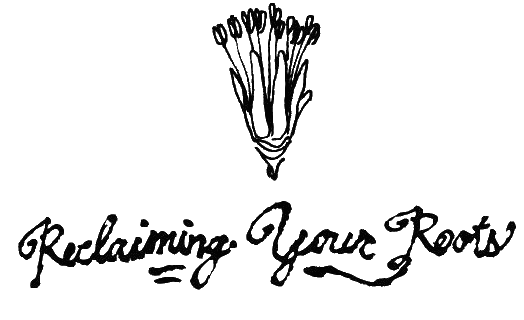Herbal Relief from Seasonal Allegies: Stinging Nettles
Despite the cold temperatures, spring time is upon us and allergy season has begun. Growing up in Knoxville, TN, seasonal allergies were considered quite normal and as a young child, I was promptly prescribed a nasal steroid, a 24hr antihistamine, and some pseudophedrine to help my body cope. As I grew into an adult, I assumed that these medications were a necessity because every time I tried to go off of them during the spring or summer, my body rebelled. After my toxic mold-induced autoimmune illness came in to the picture over 3 years ago, I was forced to quit all of these drugs cold turkey because my body started having horrible reactions to them. I also realized that the antihistamines I was taking were slowing down the rate at which my liver was breaking down toxins and actually impeding my ability to get well. The first spring and summer were awful but as I began to heal my digestive system, revive my adrenals, and balance the stress response in my body, my allergies slowly subsided. Now, even living in Knoxville, TN, I no longer experience allergies.
Pollen isn't toxic to our bodies and although large quantities of it certainly can stop up anyone's nasal passages, exposure to natural pollen shouldn't have to provoke a significant immune response. Herbs and diet can play an essential role in helping us to reverse the root causes of our allergies, as well as providing us with symptomatic relief in the meantime.
Nettles Urtica dioica
Parts used: Aerial parts
Medicinal uses: Where to begin? Nettle is one of our most important tonics and literally strengthens and supports the entire body. Nettle leaves are filled with vitamins and minerals, especially rich in iron, calcium, potassium, silicon, B vitamins, vit. C, magnesium, manganese, zinc and chromium. Considered a “blood building” herb, nettles are especially rebuilding for folks recovering from nutritional deficiency due to chronic illness, celiac disease, poor diet, and anemia, as well as after significant blood loss from surgery, menstruation, or giving birth. Nettles are also a key plant ally for dealing with seasonal allergies, especially allergic rhinitis, due to their anti-inflammatory actions and antihistamine-like actions. Nettles actually contain histamine and help to modulate and normalize the immune response over a period of time. I usually recommend using them for at least a month leading up to allergy season but since that is nearly year-round in East TN, you can start at any time.
How to use: Nettles grow very well in the garden and are delicious to eat if you are so inclined. They grow in the spring and fall and if you have access to them, the leaves and tops are delicious to cook with and can replace spinach in any recipe. Harvest when the nettles are a foot tall or so. You can continue to cut them back until the plant goes to seed in the summer. You’ll then be able to harvest a new crop in the fall. They should be well steamed to avoid stinging. Try nettle omelettes, soups, even spanikopita. For reducing allergy reactions, I recommend 2-3 c of nettle tea a day or freeze-dried nettle capsules. You can usually find the capsules at a health food store or buy them from Mountain Rose Herbs. For the tea, use 1-2 tsp of dried herb per 8 oz cup and steep for 20-30 minutes.
Contraindications: Nettles are cleansing and building for the liver and kidneys. If you have a weak constitution or toxicity issues, I would recommend starting with low doses and seeing how your body reacts. This will avoid too quick of a detoxification.

